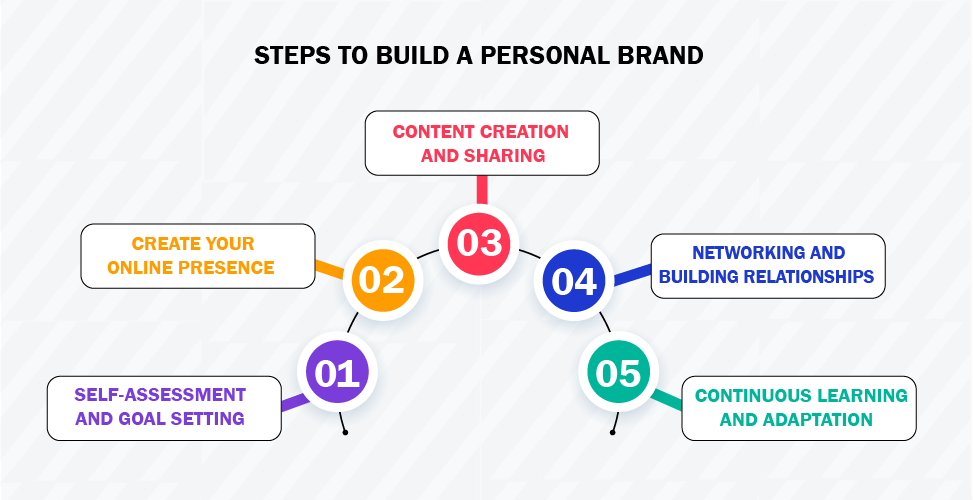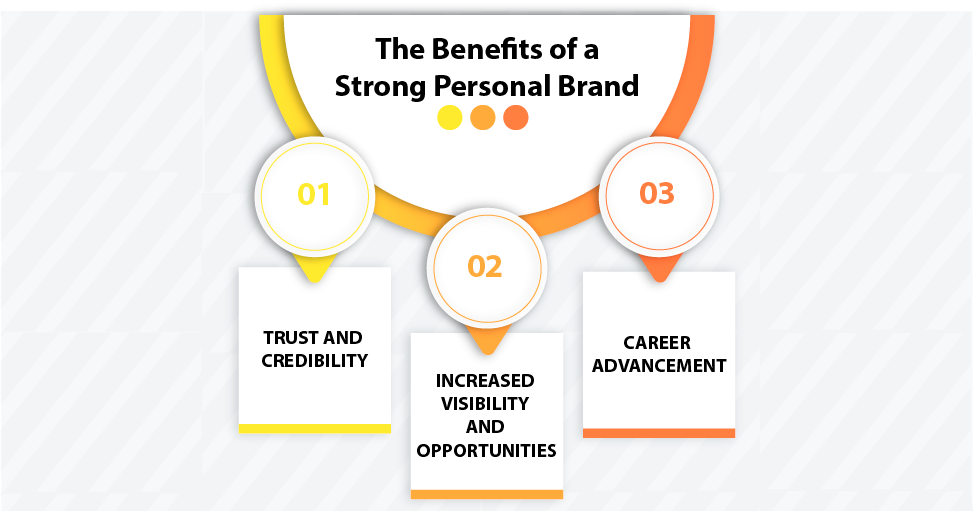Table of Contents
ToggleIntroduction
Personal branding has emerged as a critical factor in career success. A study by CareerBuilder revealed that 70% of employers use social media to screen candidates during the hiring process, and 57% are less likely to interview a candidate they can’t find online. The importance of a robust personal brand is further underscored by LinkedIn’s data, which shows that professionals with a strong personal brand are 27% more likely to be approached by recruiters. As the job market continues to evolve, the significance of personal branding is only expected to grow. By 2025, it’s estimated that over 75% of the workforce will be millennials and Gen Z, who are known for their digital savviness and emphasis on personal branding. In this context, building and maintaining a personal brand is not just an option but a necessity for career advancement.

Don't miss out on your chance to work with the best
Apply for top global job opportunities today!
What is a Personal Brand?
A personal brand is the unique combination of skills, experiences, and personality that you want the world to see. It is the telling of your story, and how it reflects your conduct, behavior, spoken and unspoken words, and attitudes. Effective personal branding differentiates you from the competition and allows you to build trust with prospective employers and clients.
Read in detail: TOP 16 REASONS YOU’RE NOT GETTING JOB OFFERS IN 2024 Steps to Build a Personal Brand

1. Self-Assessment and Goal Setting
- Identify Your Strengths and Unique Value Proposition: Understand what sets you apart from others. What are your key strengths, skills, and experiences?
- Set Clear Goals: Determine what you want to achieve with your personal brand. Is it to get a new job, advance in your current career, or switch fields?
2. Create Your Online Presence
- Professional Social Media Profiles: Ensure your LinkedIn profile is up-to-date and reflects your personal brand. Other platforms like Twitter, Instagram, and a personal blog can also be valuable.
- Consistent Branding: Use the same photo, color schemes, and tone across all platforms to create a cohesive and recognizable brand.
3. Content Creation and Sharing
- Showcase Your Expertise: Write articles, create videos, or start a podcast to share your knowledge and insights.
- Engage with Your Audience: Respond to comments, join relevant groups, and participate in discussions to build a network and establish your authority.
4. Networking and Building Relationships
- Attend Industry Events: Whether virtual or in-person, industry events are a great way to meet new people and expand your network.
- Connect with Influencers and Mentors: Building relationships with key figures in your industry can open doors and provide valuable guidance.
5. Continuous Learning and Adaptation
- Stay Updated: Keep abreast of the latest trends and developments in your field.
- Seek Feedback: Regularly ask for feedback from peers and mentors to refine and improve your personal brand.
The Benefits of a Strong Personal Brand

- Increased Visibility and Opportunities: A strong personal brand makes you more visible to recruiters, potential employers, and clients.
- Career Advancement: Professionals with a strong personal brand are often seen as leaders and are more likely to receive promotions and job offers.
- Trust and Credibility: A well-established personal brand builds trust and credibility with your audience, making it easier to influence and lead.
Read in detail: THE ROLE OF SOCIAL MEDIA IN JOB HUNTING Conclusion
Building a personal brand is a strategic process that involves self-assessment, consistent online presence, content creation, networking, and continuous learning. As the job market becomes increasingly competitive, a strong personal brand can differentiate you from the competition, enhance your visibility, and open up new career opportunities. Investing time and effort in building your personal brand is not just beneficial but essential for long-term career success. Whether you’re just starting out or looking to advance in your career, a well-crafted personal brand can help you achieve your professional goals and stand out in the ever-evolving job market.
Take control of your career and land your dream job
Sign up with us now and start applying for the best opportunities!


